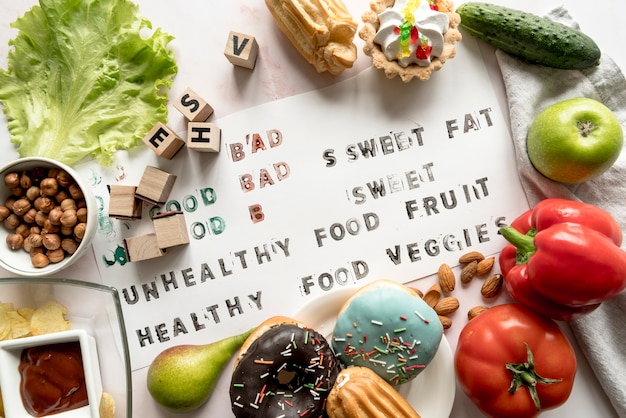
Sometimes, despite following a strict diet, working out consistently, and doing everything by the book to lose weight, the results just don’t match the effort. This could be due to something many of us overlook—reactions to certain foods that might be sabotaging our weight loss goals.
When trying to manage weight, most people focus on eating healthy and avoiding known fattening foods. But, here’s the catch: just because a food is labeled “healthy” doesn’t mean it will work the way you expect. Some foods that are considered healthy might not agree with your body and could even cause adverse reactions, keeping you from shedding those extra pounds.
Food intolerance or reaction doesn’t always show up in obvious ways, like bloating, acne, or fatigue. Sometimes, it’s more subtle, like a sluggish metabolism or difficulty losing stubborn fat. So you might unknowingly be sabotaging your weight loss without realizing it. To help you stay on track, here are some common pitfalls and how to avoid them:
### Eating Too Many Healthy Snacks
One major mistake people make is eating healthy snacks without paying attention to portion sizes. Even nutritious options like almonds or avocados are calorie-dense, and eating them without moderation can quickly add up. The same goes for packaged foods labeled “healthy.” These products may contain hidden calories, and overeating them could derail your progress. To avoid this, always stick to measured portions and keep track of your calorie intake, even when snacking.
### Relying on “Sugar-Free” Products
A lot of people turn to products labeled “sugar-free” when trying to lose weight, but not all of these are truly free of sugar. Many contain artificial sweeteners, which can lead to weight gain over time. Studies have shown that consuming artificially sweetened foods and drinks can actually increase your cravings and calorie intake. Instead of relying on sugar-free packaged foods, try making your own sugar-free alternatives at home so you know exactly what’s in them.
### Overeating Protein
Protein is great for weight loss and helps build lean muscle, but too much of it can backfire. Excess protein that your body doesn’t use gets stored as fat, which can contribute to weight gain. Eating protein in moderation helps you stay satiated longer, reducing the chances of overeating. Stick to appropriate serving sizes for a balanced approach.
### Skipping Meals
Skipping meals to cut calories may seem like a good idea, but it can actually be counterproductive. Skipping meals slows down your metabolism, making it harder for your body to burn calories efficiently. Instead of skipping meals, aim to eat small, balanced portions throughout the day. This keeps your metabolism active and reduces the likelihood of overeating later.
### Avoiding All Fats
Not all fats are bad. While it’s important to avoid harmful trans fats, healthy fats—like those found in salmon, nuts, and avocados—are essential for your body. They not only help you feel full for longer periods but also aid in absorbing nutrients. Including the right amount of good fats in your diet can actually support your weight loss goals.
### Drinking Packaged or Bottled Water
Drinking water is crucial for staying hydrated and supporting weight loss, but drinking from plastic bottles could inadvertently hinder your progress. Many plastic bottles contain a chemical called BPA, which has been linked to obesity. To avoid this issue, opt for filtered water and use reusable bottles made from glass or stainless steel.
### Cutting Out Desserts Completely
Depriving yourself of desserts completely can sometimes lead to overwhelming cravings that make you overindulge later. Instead, treat yourself to a small serving of dessert occasionally. This keeps your morale high and prevents you from feeling burnt out during your weight loss journey. Just make sure it’s in moderation.
### Overdoing Exercise
Exercise is important, but overdoing it can be harmful. Pushing your body too hard without giving it time to rest can lead to exhaustion, injuries, and even weight retention due to stress hormones. Make sure to incorporate rest days into your routine to allow your body to recover and perform at its best.
### Falling Into Social Eating Pressure
Social gatherings can pose a challenge when you’re trying to stick to a diet. Family, friends, or colleagues might encourage you to indulge in unhealthy foods, making it hard to say no. To handle this, politely decline or eat beforehand so you’re not tempted. Staying committed to your goals is key.
By addressing these common mistakes, you can overcome the challenges that might be sabotaging your weight loss efforts. Pay attention to what works for your body and make small adjustments that fit your lifestyle. With consistent effort and awareness, you can achieve your desired results.